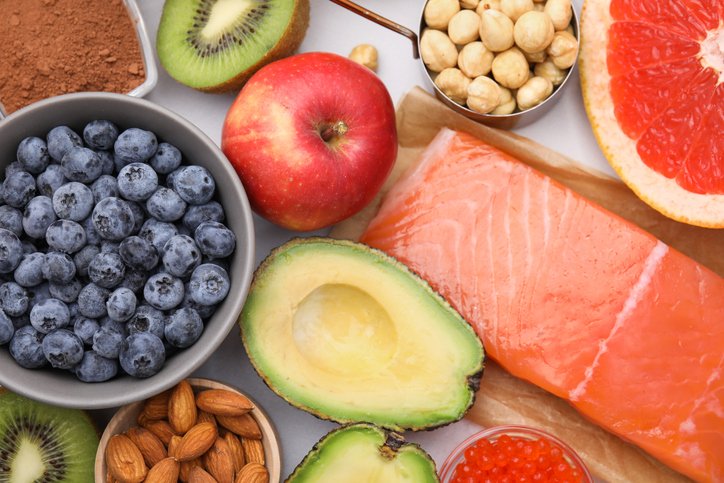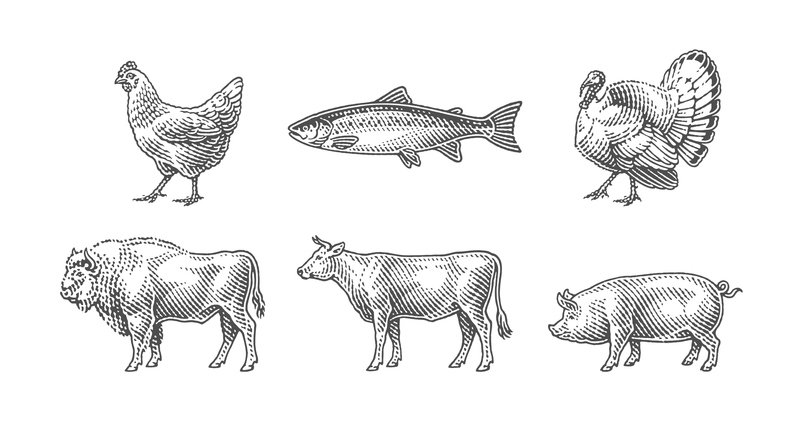Rethink Your Diet: Embracing Whole Foods, Animal Fats, and Avoiding Processed Carbohydrates and Vegetable Oils
In an era where dietary choices are as diverse as they are debated, one principle stands clear: the benefits of eating a diet rich in whole foods, devoid of processed carbohydrates and vegetable oils, and inclusive of animal-based foods with their inherent fats. Here's why this approach has always been one of the most important aspects of unlocking optimal health.
Whole Foods: Nature's Nutritional Powerhouses
Whole foods are unprocessed or minimally processed, retaining their natural state close to how they're found in nature. This includes fruits, vegetables, whole grains, legumes, nuts, seeds, and animal products like meat, fish, eggs, and dairy.
Benefits:
Nutrient Density: Whole foods are packed with essential vitamins, minerals, and antioxidants. For instance, leafy greens offer vitamins A, C, K, and minerals like iron and calcium. However, even these are less potent in minerals and vitamins compared to animal-based foods.
Bioavailability: Animal products contain fat-soluble vitamins (A, D, E, K1, and K2), which are crucial for numerous bodily functions and are not as readily available in plant sources. Additionally, B vitamins like B12, which is vital for nerve function and the production of red blood cells, are predominantly found in animal products.
Health Outcomes: A diet high in whole foods can lead to better digestive health, improved weight management, reduced risk of chronic diseases like heart disease, and even psychological benefits due to the natural mood-enhancers in these foods.
Processed Carbohydrates: The Hidden Culprits
Processed carbohydrates include foods that have been altered from their natural state, often to extend shelf life, enhance flavor, or change the texture. Examples include white bread, pasta, cookies, cakes, sodas, and many breakfast cereals.
Negative Effects:
Dental Health: A high intake of processed carbs leads to an increased risk of caries and gum disease due to their conversion into sugars in the mouth, fueling bacterial growth. Indeed, cavities were virtually unknown before we started to consume them over 10,000 years ago.
Metabolic Health: These foods spike insulin levels, leading to insulin resistance over time, which is a precursor to type 2 diabetes. The rapid rise and fall in blood sugar can also cause energy dips and mood swings.
Gut Microbiome: Excessive consumption can disrupt the balance of gut flora, leading to dysbiosis, which is linked to a plethora of health issues, from IBS to mental health disorders.
Vegetable Oils: Industrial Alchemy at Its Worst
Vegetable oils are fats extracted from seeds like soybeans, corn, sunflower, canola, and cottonseed. Contrastingly, avocado, coconut, and olive oils are fruit oils. They are derived from the fleshy part, not the seeds. The fats they contain are safe.
How They Are Made:
Extraction: Often involves high heat and solvents like hexane, which can leave residues in the oil.
Refinement: This includes deodorizing (to remove rancid odors), bleaching (to remove color), and hydrogenation (to increase shelf life, which creates trans fats). Each step involves harsh chemicals and conditions that degrade the fats' natural benefits and cause them to be oxidized, which is harmful to us.
Health Risks:
Omega-6 Overload: Modern diets are flooded with omega-6 fatty acids from these oils, skewing the omega-6 to omega-3 ratio, which should ideally be balanced for health. This imbalance is linked to inflammation, a root cause of many chronic diseases.
Mitochondrial Damage: Dr. Chris Knobbe has extensively discussed how the high omega-6 content in these oils can disrupt mitochondrial function, leading to cellular damage and diseases like obesity, diabetes, macular degeneration, and cardiovascular issues.
Neurological Impact: The excess of linoleic acid, as noted by Casey and Calley Means, might contribute to neurodegenerative diseases like Alzheimer's due to its inflammatory effects on the brain. Read more about their stance in my post here.
Animal-Based Foods with Inherent Fat: A Return to Natural Nutrition
These include meats, poultry, organs, marrow, dairy, eggs, and fish, where fats are naturally occurring, not added or processed.
Benefits:
Essential Nutrients: They are rich sources of vitamins D, E, K2, and B12, which are either not found in plant foods or are in less bioavailable forms.
Healthy Fats: Animal fats contain saturated fats and cholesterol, which are vital for hormone production, brain health, and cell membrane integrity. Contrary to past beliefs, recent research supports that these fats do not necessarily contribute to heart disease when part of a balanced diet.
Satiety and Weight Management: Fats from animal sources can increase satiety, potentially lowering overall caloric intake and aiding in weight management.
Conclusion
The transition to a diet focused on whole foods, valuing the natural fats present in animal products while reducing processed carbohydrates and industrial vegetable oils, could greatly benefit public health. When consuming the diet discussed today, our bodies thrive on nutrition as nature intended, not as industry dictates. This dietary philosophy not only promises to reduce the incidence of modern diseases but also to enhance our overall well-being, aligning us more closely with our evolutionary nutritional needs.
The choice to change your diet is a profound one, impacting not just personal health but potentially societal health norms. It's a call back to simplicity, sustainability, and the natural balance our ancestors knew well before the industrial food revolution altered our plates and, consequently, our health.




